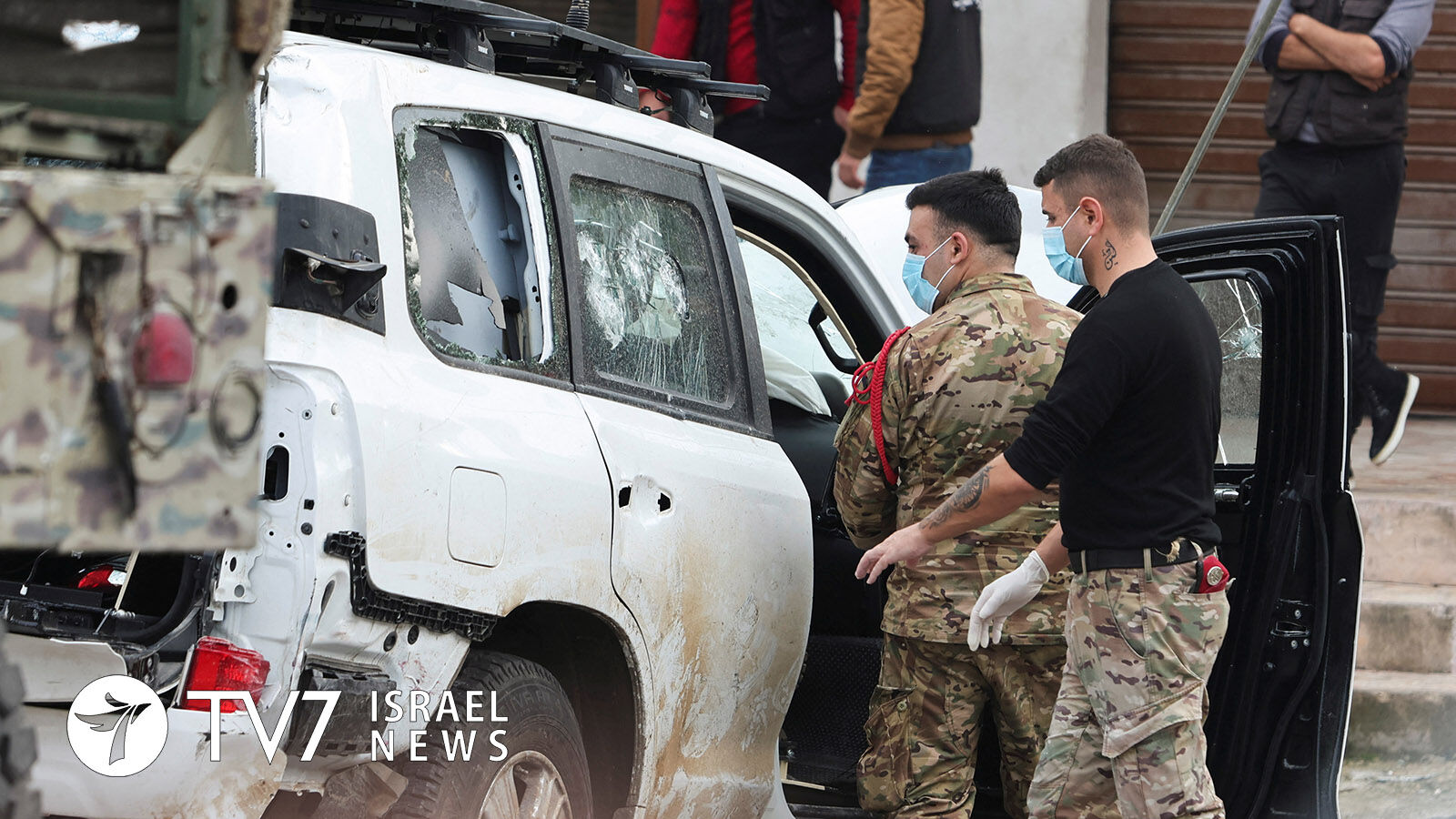An Irish soldier serving with the United Nations Interim Forces in Lebanon (UNIFIL) was shot and killed in in Al-Aqbieh, and a second is critical condition.
By Erin Viner
The fatality was identified as 23-year-old Seán Rooney.
The soldiers were part of what is considered a standard run by two vehicles from UNIFIL’s area of operations in south Lebanon to Beirut when the shooting happened late on Wednesday, said Irish Foreign Minister Simon Coveney.
“The two armored vehicles effectively got separated. One of them got surrounded by a hostile mob, I think that’s the only way you could describe them, and shots were fired,” Coveney told Irish national broadcaster RTE.
He cited “some tension on the ground between Hezbollah forces and UNIFIL in recent months,” but said the killing was “unexpected.”
The Reuters news agency reported that yesterday a UNIFIL vehicle was still at the site, after appearing to have crashed into a shop and flipped onto its side. The area was cordoned off by the Lebanese Armed Forces (LAF).
Two vehicles carrying eight personnel were travelling to Beirut as two of the members were returning to Ireland on compassionate leave following the death of family members, Irish Defense Forces Chief of staff Seán Clancy told RTE.
The second soldier remains in a UN-managed hospital after having undergone surgery, Clancy said. Two other soldiers in the vehicle were being treated for minor injuries, while the other four personnel in the other vehicle were not injured.
UNIFIL has operated in Lebanon since 1978 by United Nations Security Council Resolutions (UNSC) 425 and 426 to maintain peace along its border with Israel. Subsequent UNSC Resolutions affirming the mandate include 1655, 1697 and 1701 in 2006; the latter of which was passed as part of the ceasefire agreement between Israel and the Hezbollah terror organization in the Second Lebanon War. UNIFIL’s presence was later extended in August 2022 by UNSC 2650.
10,000 peacekeepers from 46 nations participate in the peacekeeping force to assist the LAF safeguard the south of the country – which lies just over Israel’s northern frontier.
Southern Lebanon is a stronghold for Hezbollah, a powerful armed group and a heavyweight political party backed by Iran. The party has denied a role in the violence.
Senior Hezbollah official Wafiq Safa said that the soldier was killed during an “unintentional incident that took place between the residents of Al-Aqbieh and individuals from the Irish unit.” He insisted this organization had no part in the clash, which he claimed included the hitting of local people by UNIFIL vehicles in a crash.
“We don’t accept any assurances until we have a full investigation concluded to establish the full truth,” said Coveney in response.
The Irish Foreign Minister, who is in New York to attend a UNSC meeting, discussed the incident, which marks the first Irish fatality in Lebanon in two decades, with UN Secretary General António Guterres.
UNIFIL had opened an investigation in coordination with the LAF but said that details remain “sparse and conflicting.” The Lebanese army offered condolences but did not provide any additional information. Dublin offered to send an Irish delegation to assist in the inquiry.
UN Special Coordinator for Lebanon Joanna Wronecka wrote on Twitter that “a quick & thorough investigation to determine the facts of this tragic incident is crucial.”
Lebanon’s Caretaker Premier Najib Mikati today visited UNIFIL headquarters with the LAF Commander to pay their respects, where he affirmed Beirut’s commitment to the peacekeeping mission’s presence. Urging all parties to “show wisdom and patience,” Mikati pledged that those responsible for the killing “will be punished.”
The United States condemned “in the strongest terms the violent attack on UNIFIL peacekeepers,” and said generally that hostility against peacekeepers “is unconscionable.”
Israeli Defense Minister Benny Gantz extended sincere condolences on behalf of Jerusalem’s defense establishment over the soldier’s killing, stressing that “UNIFIL’s role is very significant and is key to maintaining stability and calm in our region.”
